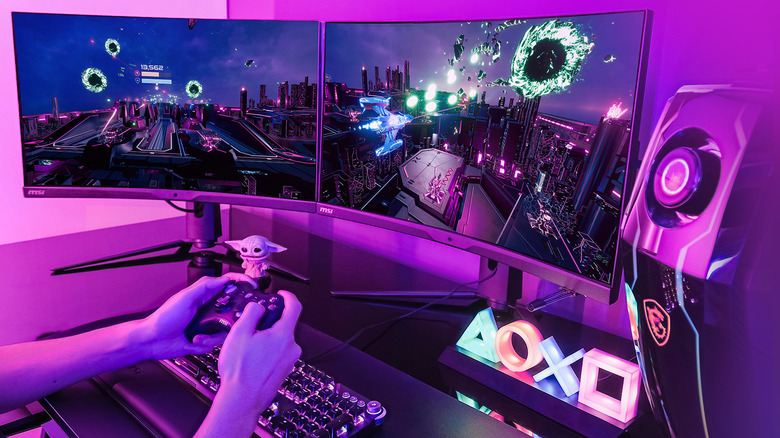No, Console Gaming Isn't Necessarily Cheaper Than PC – Here's Why
The PC versus console debate is as old as time, but lately, the former has pulled ahead in the most unexpected category — cost. Yes, despite the upfront price, PC gaming is often the cheaper option in the long run. Sure, a decent gaming PC that competes with a PS5 or Xbox Series X can cost anywhere between $850 and $1,500 before adding extras like a monitor or accessories. But once that initial investment is made, things start to look different.
Unlike consoles, which lock you into a single store per platform, PC gamers can shop across Steam, Epic Games Store, GOG, itch.io, and more. With competition between these platforms fierce, sales are not just frequent, they're extreme. Games can drop to a few bucks within months of release, and in some cases, even less. Steam also regularly hosts publisher-wide discounts and massive seasonal events that slash prices across thousands of titles. Over time, this constant price-cutting saves players hundreds.
Then there are the freebies. The Epic Games Store has been giving away at least one game every week since its launch in 2018, and if you own all of them, your library is probably already valued in the thousands. Add in indie bundles from platforms like itch.io — often available on a pay-what-you-want basis — and it becomes obvious how quickly a large game library can grow without breaking the bank. PC games also dodge the new-gen standard of $70 pricing more often than not. Kingdom Come: Deliverance 2, for example, costs $60 on Steam while retailing for $70 on PS5. That $10 difference per game becomes significant if you're playing several titles each year.
Consoles are easier, but PCs offer more value
It's also important to remember that a gaming PC isn't just a game machine. It's a full computer that can also handle school or work tasks, creative tools, streaming, and just about anything else. Many console gamers end up buying both a console and a separate computer, while a single gaming PC can do everything. Plus, even while PCs may be more expensive, there's a good chance that new-gen consoles will be priced higher and close the gap some more — just look at the $700 PS5 Pro. On consoles, exclusivity sometimes also adds to the cost. "Final Fantasy VII Rebirth", for example, isn't available on Xbox, and "Starfield" has so far skipped PlayStation entirely. Owning a single console might not be enough to play every major release.
Of course, there are downsides to PC gaming, too, especially when it comes to time and ease of use. Setting up a gaming PC can take longer, and it sometimes requires a bit of technical knowledge. Even prebuilt systems might need driver updates, software tweaks, or occasional troubleshooting. Changing graphics settings, managing mods, and fixing bugs are all part of the experience. There's also the comfort factor. Consoles are designed for the couch. They're easy to use and don't require much effort beyond turning them on. Most people use their PCs at desks, which isn't always the most relaxing place to unwind. All that time needed to adjust settings or deal with crashes is also a headache.
Still, once those hurdles are cleared, the long-term value of a gaming PC is hard to beat. The games cost less. The system itself can be used for much more than just games. And over time, those savings add up far faster than most people expect.

